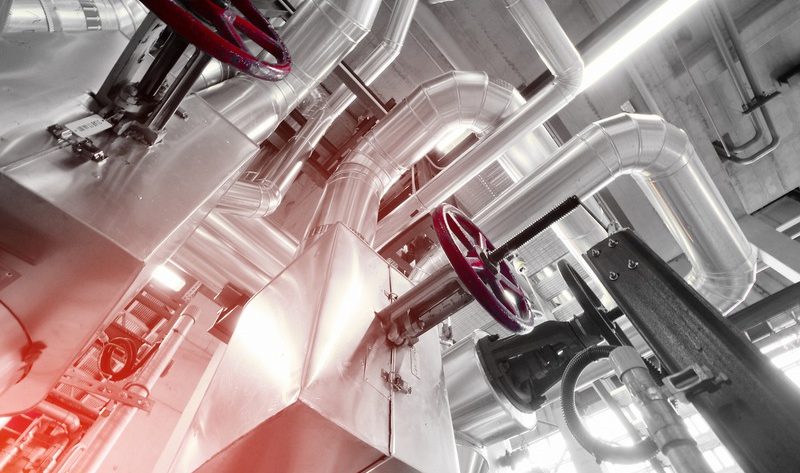When it comes to gases, not all are created equal. A distinct line exists that separates commonly used gases from those categorized as specialty gases. This differentiation is significant across various industries where a distinct line exists. These gases are crucial for processes where even minor impurities can disrupt outcomes, making them indispensable despite their higher costs.
This applies to various industries, such as electronics, pharmaceuticals, and scientific research, all of which demand precise and reliable chemical inputs.
What Are Specialty Gases?
Specialty gases represent high-purity gases, which are generally used in applications requiring precise calibration. They are typically singled out for their specific properties and performance which may include:
-
Purity levels that surpass those of standard commercial gases.
-
Customized mixtures tailored to suit exact industry requirements.
-
Special handling and storage protocols to maintain integrity.
Specialty gases are primarily utilized in critical applications, from medical use for patient care, to precise calibration gas mixtures for monitoring environmental pollutants.
What Sets Common Gases Apart
Common gases, on the other hand, may not boast the same high purity levels and are typically used in more general applications such as heating, cooking, and refrigeration. The production process for common gases allows for greater tolerances regarding purity and mixture ratios, making them suitable for everyday uses where the fine margins of specialty gases are not required.
Let’s delve into some intricate contrasts between specialty and common gases that cater to a wide array of distinct exigencies.
Quality and Purity Levels
The most notable distinction lies in the purity levels. Specialty gases are often required to have purity levels up to 99.9999%, a standard that common gases do not usually meet. This extreme level of purity is crucial for applications in which even trace amounts of impurities can result in significant deviations or errors.
Applications That Demand Accuracy
The fields of analytics, manufacturing, and scientific research often depend on the unparalleled precision offered by specialty gases. Let’s look at a few pivotal uses:
-
In laboratories, gases with exact concentrations are essential for calibration to guarantee that instruments provide accurate results.
-
In the semiconductor industry, the fabrication of electronic components necessitates environments free of contaminants, which can be achieved only with high-purity gases.
Without the optimal purity provided by specialty gases, these critical processes could be compromised, leading to costly errors and substandard products. Certification is critical in distinguishing specialty gases. They must adhere to strict global standards, ensuring quality and consistency. This level of certification is not as vigorous for common gases due to their broader range of applications and lower purity requirements.
Specialized Equipment
The equipment used for handling and delivering specialty gases is another factor setting them apart. This equipment, such as valves and regulators, is engineered to preserve the purity of the gases, preventing contamination that could disrupt their specialized applications.
Environmentally Friendly Options
Environmental considerations are paramount today, and the demand for environmentally friendly refrigerants is on the rise. These alternatives are formulated to have lower global warming potential and less environmental impact, signifying a progressive shift in both specialty and common gas domains.
Specialty Gases in the Residential Sphere
It may come as a surprise, but specialty gases also find their way into residential uses. Traceable gas mixtures help ensure the accurate functioning of home safety devices such as carbon monoxide detectors, which safeguard against potentially lethal gas leaks.
Considering the Source
When sourcing specialty gases, many turn to trusted suppliers known as US CPC manufacturers. These manufacturers are equipped to provide the highest purity levels required, along with the necessary certification and compliance to stringent industry standards.
The Surge in High-Purity Refrigerants
The refrigeration industry is another area where specialized gases play a critical role. The advent of high-purity refrigerants in the US has led to advancements in climate control technologies, proving essential for precise thermal management and enhancing overall system efficiency.
Price Point and Accessibility
Specialty gases are distinguished from ordinary gases by their high purity levels and the intricate production processes required to produce them. Because of these factors, they often come with a higher price tag. This premium is a direct reflection of the substantial resources, technology, and expertise deployed to create these specialized products that meet meticulous specifications.
For businesses reliant on the exceptional quality and consistency provided by specialty gases, the investment in these materials is deemed necessary.
To End
Specialty gases indeed stand in a league of their own, distinct from common gases in purity, application, and handling. From the meticulous fabrication process and rigorous standards to their critical role in various industries, it is clear why specialty gases are invaluable despite their higher cost. This high level of specialization ensures that key sectors can operate with the precision and efficiency needed in our modern world.




